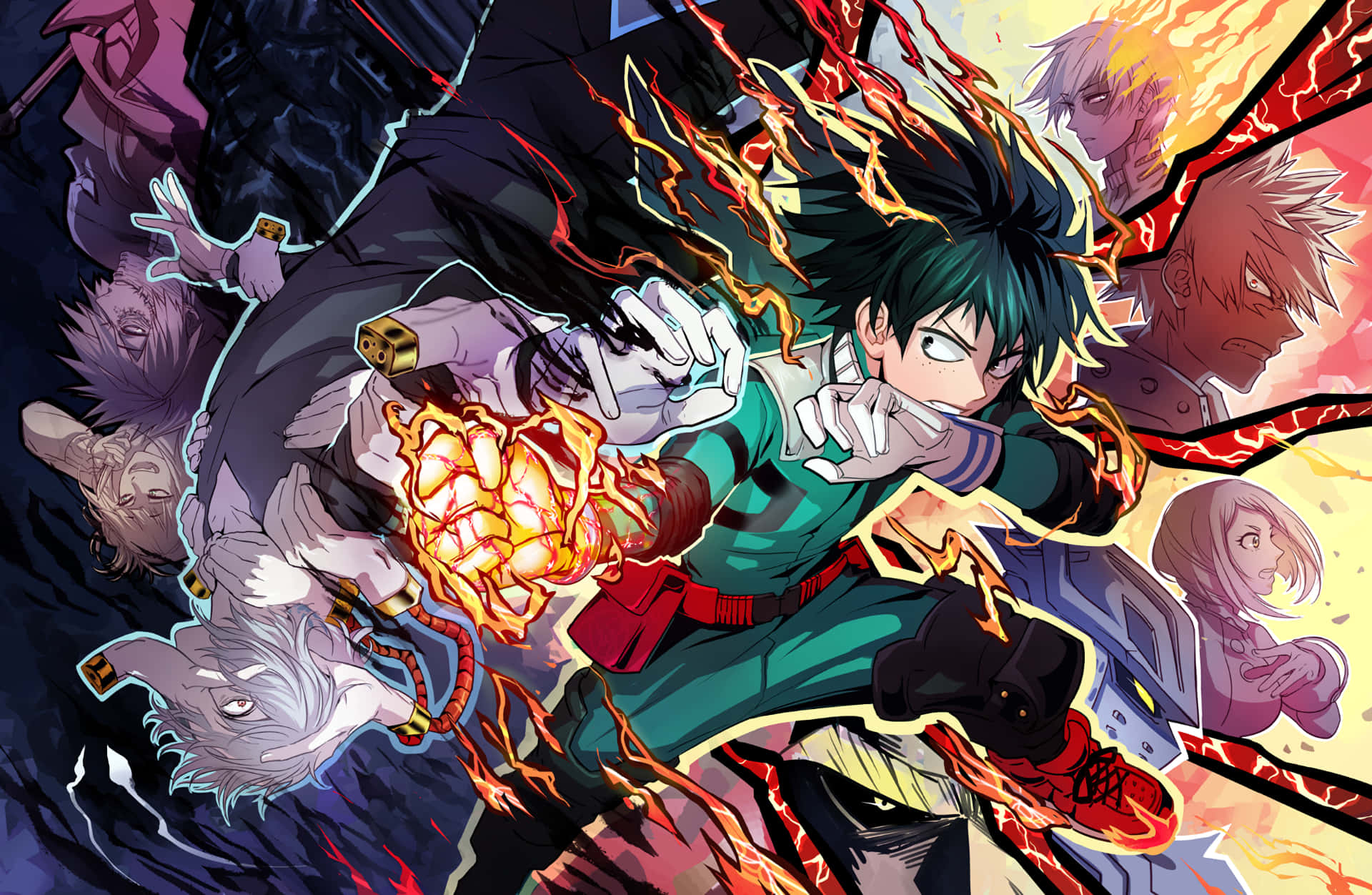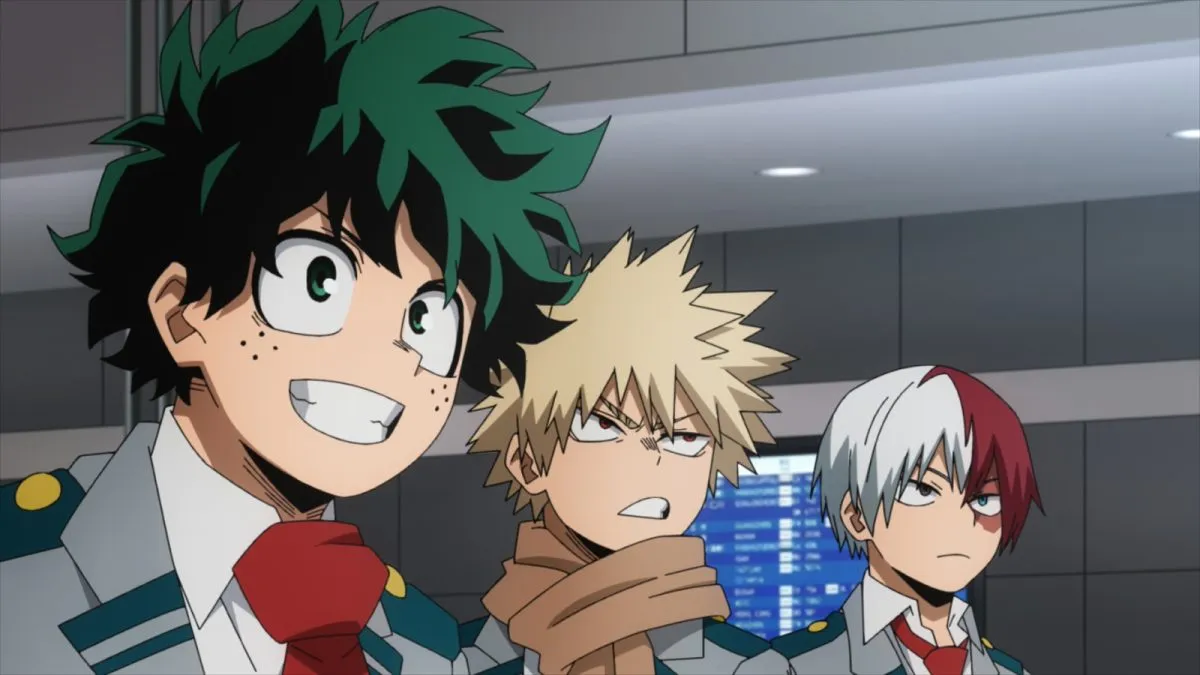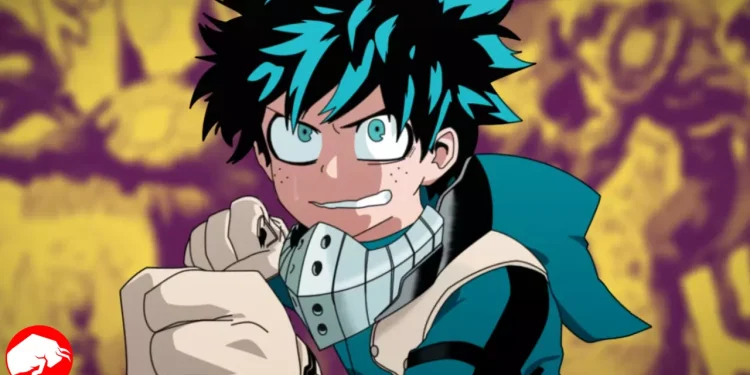My Hero Academia, a series veined with complex narratives and diverse character arcs, gracefully tip-toes along the blurred lines separating heroes from villains. The essence of heroism is explored through its plethora of characters, each bringing a unique shade of morality to the tableau. At the heart of this intricate web stands the young protagonist, Izuku Midoriya, popularly known as Deku, whose journey prompts a profound question; is he a villain masquerading as a hero, or is he the epitome of heroism?
The Gray Shades of Morality

The storyline of My Hero Academia does not shy away from probing the ethics of its characters, be it heroes or villains. It delves deep into the psyche of its antagonists like Shigaraki, Twice, Himiko, and Dabi, exposing the motivations that drive them. This knack for exploring gray areas extends to the protagonist, Deku, a character who has known the harsh realities of a superhuman society from a tender age.
His journey from being a quirkless dreamer to being chosen as the successor of All Might’s One for All, is laden with trials that could potentially lead anyone astray. This journey poses a speculative question, could Deku’s experiences, especially during trying times, nudge him into the realm of villainy?
A Hero Misconstrued
The Tartarus Escapees arc showcased a period where distrust in heroes soared and Japan plummeted into chaos. During this tumultuous time, Deku’s appearance took on a darker tone, a result of his solitary mission to hunt down All for One. The ominous change fueled rumors among the citizens, causing them to question Deku’s allegiance. Speculations of him being a Nomu or being connected to All for One due to his multiple quirks swirled around, bringing forth the moniker of Dark Deku.
All Might was what?! pic.twitter.com/WNb1eadhc9
— My Hero Academia (@MHAOfficial) February 6, 2023
Despite the grim moniker, the reality of Deku’s moral compass stands firm. He has never veered off the path of righteousness; instead, his actions are consistently aimed towards the greater good. The closest Deku comes to treading the villainous path is during his vigilante phase. Even then, his actions are sanctioned by the Pro Heroes, making him far from a rogue element. The protagonist also gets framed as a villain in My Hero Academia: World Heroes’ Mission, a scenario stemming from a mere misunderstanding rather than a reflection of his character.
Parallels of Fate
An interesting undercurrent of My Hero Academia is the narrative parallel between Deku and Shigaraki, emphasizing how circumstances could lead similarly endowed individuals down starkly different paths. The portrayal beautifully illustrates how easily a child could fall into the abyss of villainy or rise to the mantle of heroism depending on the hand fate deals them.
Yet, despite his harsh past and the potential to stray, Deku has proven time and again that his innate heroic nature prevails. His selfless acts of bravery, bolstered by the unwavering support from All Might, Class 1-A, and the U.A. community, are testaments to his unyielding heroism. In his own words, he is destined to become the greatest hero, a statement that resonates through his actions, shattering any semblance of doubt regarding his loyalty and heroic integrity.

Conclusion
The allegory of Deku’s character is a fascinating exploration of the human spirit and the boundless dimensions of heroism encapsulated in the heart of a young hero aspiring to uphold justice. My Hero Academia, through Deku, delineates a narrative that celebrates the relentless pursuit of righteousness, even when shrouded in misunderstanding and skepticism. Through each chapter, through every battle, Deku emerges as the embodiment of the true hero, illuminating the path for many to follow.










